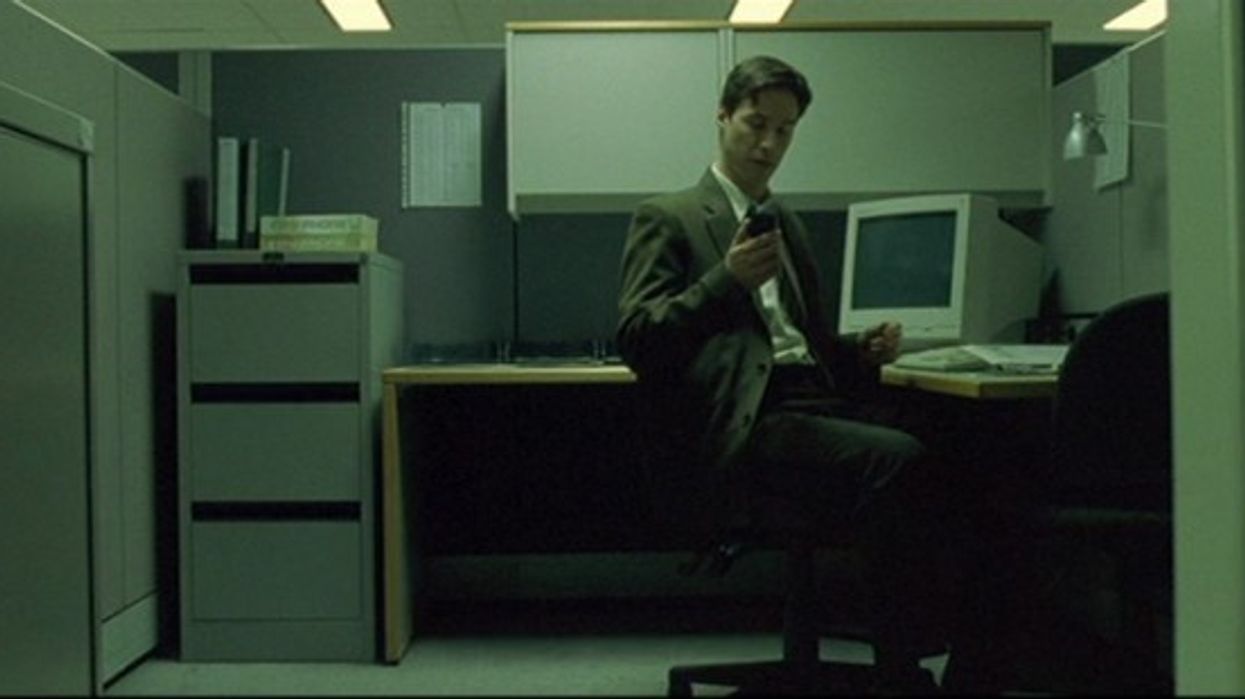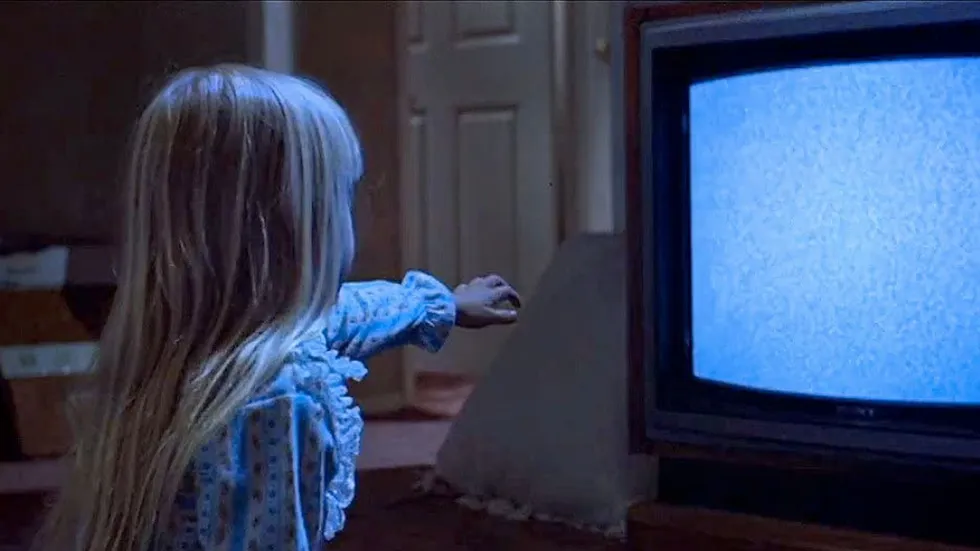What is Apparatus Theory?
Dive deep into this way to analyze film and television.

The Matrix
I have been reading a lot about film theory lately, and getting into some of the specific terms people use to describe what happens on screen.
One of the ones that kept coming up and being debated was Apparatus Theory.
So, today we'll get into the complexities of Apparatus Theory, tracing its historical origins, exploring its key components, and examining its implications in the broader context of film studies.
Let's get started.
Apparatus theory definition
Apparatus theory is a concept in film studies and media analysis that examines the underlying mechanisms and psychological processes involved in the experience of watching a film.
This theory suggests that the way a film is produced, presented, and consumed is not neutral, but deeply embedded with ideological and psychological implications.
The idea in layman's terms, movies (and TV) are not just entertainment, but tools that shape how we think and see the world. It suggests that when you watch a film, you're not just watching a story; you're also being influenced by the underlying ideas and beliefs that the film carries.
Origins of Apparatus Theory
Apparatus theory originated in the 1970s, drawing from the works of Jean-Louis Baudry, Christian Metz, and other film theorists.
These scholars, influenced by the psychoanalytical theories of Freud and Lacan, as well as Marxist ideas, sought to analyze cinema beyond mere textual content, focusing on the psychological and ideological impact of the cinematic experience.
How Does Apparatus Theory Work?

Poltergeist
Warner Bros.
This theory believes that movies reflect the beliefs and values of the society they are made in. So, when you watch a movie, you're also seeing the ideas and beliefs that are common in that society.
And when you look at the word "apparatus" in this theory refers to the idea that cinema acts like a machine or a tool. Just like a tool is designed to do a specific job, this theory suggests that movies are like tools designed to convey certain ideas or beliefs.
Examples of Apparatus Theory
Applying Apparatus theory in film analysis involves looking at examples where the cinematic experience shapes viewer perception and reinforces ideological messages.
- Classic Hollywood Cinema: The traditional Hollywood style of filmmaking exemplifies many aspects of Apparatus theory. The use of continuity editing, close-ups, and point-of-view shots creates a seamless narrative world. Viewers are drawn into this world, identifying with the camera's gaze and the characters, often without questioning the underlying ideological messages. For example, many Hollywood films of the mid-20th century reinforced traditional gender roles and societal norms.
- Propaganda Films: Films produced for propaganda purposes, like those made during the Nazi regime in Germany or the Soviet Union under Stalin, are clear examples of Apparatus theory in action. These films used cinematic techniques to create powerful, emotionally charged narratives that aimed to align viewers' beliefs with specific political ideologies.
- IMAX and 3D Films: The physical experience of watching an IMAX or 3D film can also be analyzed through Apparatus Theory. The large screens and immersive experience can intensify the viewer's identification with the film, making the ideological content more impactful. For instance, nature documentaries in IMAX might subtly reinforce messages about environmentalism and conservation.
- Virtual Reality (VR) Cinema: VR cinema represents a modern evolution of the cinematic apparatus. It offers a more immersive experience, potentially heightening the psychological effects described by Apparatus Theory. For example, a VR film that places the viewer in the perspective of a specific character can deeply influence the viewer's identification with that character's experiences and viewpoint.
Why Does Apparatus Theory Matter?
Apparatus Theory has had a profound impact on film studies. It shifted the focus from merely analyzing film content to examining the underlying mechanisms and effects of the cinematic experience. It opened up discussions about how films shape consciousness and the role of cinema in reinforcing or challenging societal norms and ideologies.
But there are its detractors.
Some argue that it overemphasizes the passive role of the audience, underestimating viewers' ability to critically engage with films. Especially because it sort of takes out of account an individuals actual interaction with a movie based on their personal background.
So do you buy into it or disagree with it?
Let me know what you think in the comments.
- What is a MacGuffin? Plus a Detailed List Of Examples ›
- Listen to 12 Hours of François Truffaut Interviewing Alfred Hitchcock for Free ›
- Understanding Film Theory: An Essential Guide ›











